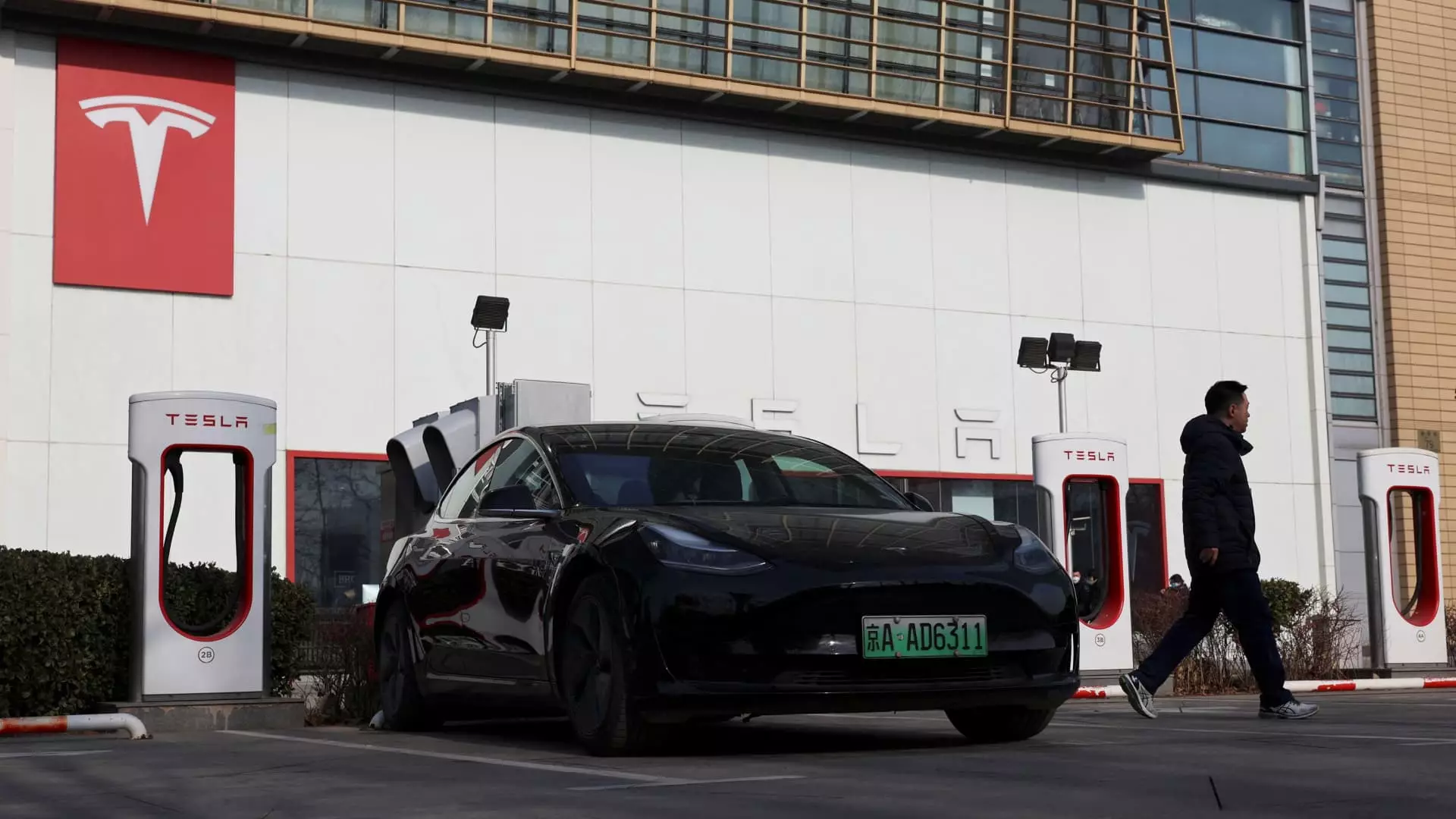The electric vehicle (EV) market in China has been undergoing a profound transformation, characterized by a decisive shift towards domestic manufacturers. As we approach 2025, the landscape is becoming increasingly clear: local companies, predominantly those focused on new energy vehicles (NEVs), are set to solidify their dominance, eclipsing traditional foreign automakers. This evolution raises questions about the long-term strategies of both leading domestic brands and their foreign counterparts.
At the forefront of this revolution is BYD, a hallmark of China’s automotive prowess. By October 2024, BYD’s market share surged to an impressive 16%, a significant leap from 12% the previous year. Industry analysts at Nomura highlight BYD as their top recommendation in the Chinese auto landscape, asserting a ‘buy’ rating alongside a price target of HKD 375 (approximately USD 48.20). This recommendation illustrates a growing confidence in BYD’s ability to outpace traditional competitors. Notably, for the first time, BYD surpassed Tesla’s quarterly revenue, marking a monumental achievement within the industry.
While Tesla continues to dominate the high-end EV market with its premium-priced offerings, a brand like BYD thrives on its diversified portfolio that includes both hybrid and battery electric vehicles. This strategy has allowed BYD to tap into a broader consumer base, significantly boosting its sales amidst a climate where Tesla reported a 4.3% decline in sales in China during November, juxtaposed against a staggering 67% increase for BYD.
Following BYD, Geely stands as a distant second in terms of market share, holding only 8% of the Chinese auto market. Despite this distance, Geely is making strides toward growth. HSBC analysts recently elevated Geely’s stock target to HKD 19.30, reflecting optimism about the company’s forward trajectory, bolstered by an expected production rate of 2.6 million units in 2025, fueled in part by a robust lineup of new models. With ambitious plans for EV penetration at 40%, Geely’s multifaceted strategy appears well-positioned for acceleration in the coming year.
Moreover, Geely’s acquisition of brands like Volvo and its association with U.S.-listed electric vehicle startup Zeekr points to a strategy of diversification and innovation. However, the future of traditional automakers remains tenuous, particularly as they grapple with the realities of surging costs and restructuring imperatives, which have been brought to light by General Motors’ recent announcements about its joint venture modifications in China.
Legacy automakers are increasingly pressed to rethink their business models or risk being further marginalized. The shift to electric and hybrid vehicles presents an existential challenge for companies like General Motors, which recently signaled potential multi-billion dollar losses due to restructuring efforts. Such realities underscore a broader trend of foreign brands faltering against the rising tide of domestic NEV manufacturers, which have demonstrated agility and responsiveness to the fast-evolving consumer preferences in China.
Despite this landscape, niche players among electric car startups continue to carve out a space for themselves, led by businesses like Yongda. This Hong Kong-listed firm operates multiple stores devoted to selling vehicles powered by Huawei’s automotive technology—an intriguing collaboration that underscores the cross-sector interplay in China’s tech and automotive industries. Yongda’s projection of achieving a million unit sales in 2025 showcases the potential for collaborative innovation within the sector.
Several up-and-coming players are drawing interest from investors, notably Nio and Leapmotor. Both companies are positioned strategically, with Leapmotor spending significantly less on R&D per vehicle compared to peers like Xpeng and Li Auto, positioning them as one of the more financially lean startups in the sector. Analysts have highlighted Leapmotor’s efficient investment in innovation, with price targets suggesting substantial room for growth as they continue to optimize their operations.
Moreover, with Nio’s ambition to achieve breakeven by 2026 and plans to ramp up production following the introduction of new models, the brand seems ready to navigate the pressures of the fast-evolving EV market effectively. The expectation of monthly sales reaching between 30,000 to 50,000 vehicles post-launch indicates a high degree of confidence in their product lines and market strategy.
As 2025 approaches, it is evident that the dynamics of the automotive market in China are shifting toward a new equilibrium, favoring domestic manufacturers. BYD’s meteoric rise, Geely’s strategic growth, and the rapid innovations among startups showcase a vivid picture of a market ripe with opportunity. Traditional automakers must adapt or risk being sideliled as the commercial landscape is rapidly reshaped, defined by those who can leverage technology and consumer trends effectively. The next few years will undoubtedly be pivotal in determining how the global automotive paradigm shifts, with China at the forefront of this electrifying transformation.

